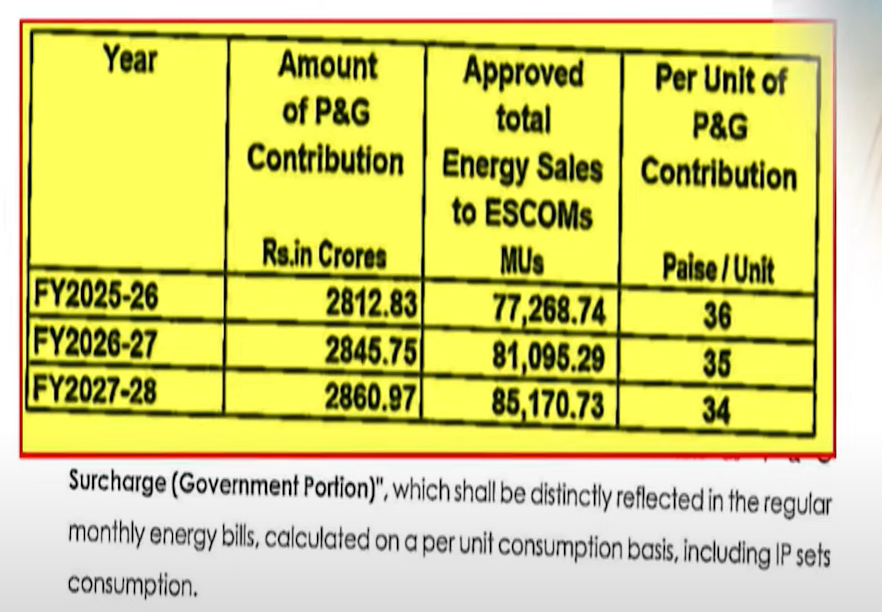Bengaluru: Consumers across Karnataka are raising alarm over unexpectedly high electricity bills under the Gruhajyoti scheme—one of the five poll guarantees of the Congress government—alleging that power utilities are levying hidden charges to fund staff pensions and gratuity.
The scheme promises 200 units of free power to every household based on average consumption. While lakhs of citizens have welcomed the zero bills under the initiative, a growing number of consumers are expressing anger over surging charges labeled as pension levies.
According to reports, electricity companies under the Karnataka Power Transmission Corporation Ltd (KPTCL) and distribution companies (ESCOMs) are collecting ₹0.36 per unit from all consumers to fund pension and gratuity obligations. This surcharge, approved by the Karnataka Electricity Regulatory Commission (KERC), is expected to continue for the next two years.

Critics argue that pension obligations should be met by the government—not consumers. “We are not employees. Why should we bear the burden of their pensions with public money?” asked residents in Mandya and Chitradurga. Many consumers are now receiving monthly bills of ₹600–₹900 despite expectations of zero bills under the Gruhajyoti promise.
“I am an auto driver. My earlier bill was ₹200–₹300. Now I’m getting ₹700! We were told power would be free. But now they’re taxing us to give pensions,” said a woman from Chitradurga.
Anger is also simmering over the opacity of the billing system, with residents complaining about a lack of transparency in the calculations. Some pointed out additional penalties, arrears, and interest charges being added to bills, creating financial pressure on low- and middle-income families.

“The government is giving with one hand and taking back with another,” said a Mandya resident. “First, they announced free electricity, and now they’re clawing it back in the form of surcharges.”
As public anger spreads, consumer rights activists and opposition leaders are calling for an audit of ESCOM billing practices and immediate rollback of the pension levy on domestic users.
The Karnataka government is yet to officially respond to the backlash, but political observers say the issue may escalate ahead of the next budget session.


